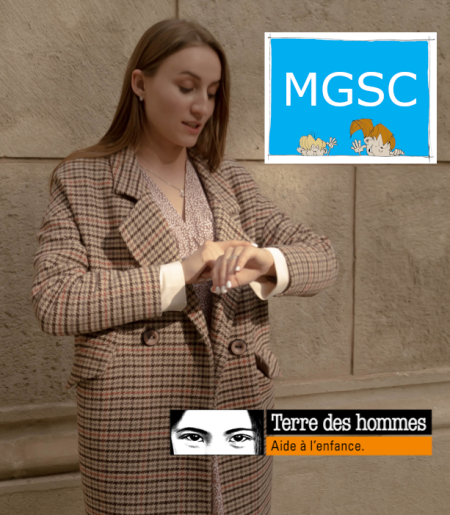

In the framework of the WELL-U project, volunteers and staff members of Terre des hommes Hungary were invited to a training on the MGSC methodology before the summer period. Svitlana as a TDH team member has been running regular MGSC sessions for Ukrainian refugee children in Budapest since then.
Can you tell me a bit about yourself and why you're interested in the Movement, Sport, Games & Creativity training?
Hello, my name is Svetlana and I am a teacher from Ukraine! I am 23 and I continue to study every day! During my work in Hungary at Terre des hommes, my colleagues told me more about the MGSC training and motivated me to try it, based on my past experience and desire to improve games and communication with children.
Have you had any previous experience or skills that motivated you to apply to MGSC training?
I had experience in conducting traditional games for children in camps, but I always wanted every player to be involved throughout the game. I was interested in this methodology because every child is involved in the game, there is no winner or loser, that is, no competition. Thanks to this, a favorable atmosphere prevails between the children, which affects the development and discovery of the child's personality.
What was your expectations and hopes for participating in this training? What do you hope to gain from it?
My expectations and hopes from the training were: learning new skills and abilities in using MGSC games; the ability to improve traditional games to the technique of conducting psycho-social games; communication, and cooperation with colleagues.
What challenges have you encountered during this training, and how did you overcome them?
Difficulties, perhaps, were language and communication, since the training was in English and my level was mediocre, but thanks to this I learned new words and deepened my knowledge of English, as well as got out of my comfort zone in communicating with other people.
To whom do you recommend participating in this training?
I recommend it to anyone who works with children, teenagers and adults. As the training has taken into account the age of the participants in the play, it helps to easily plan and organise games for all ages.
Is there anything else you would like to share about this experience, or is there anything you wished were done differently?
I like the fact that the games involve the musculoskeletal system, which is related to sports and movement; creativity, which allows each participant to offer their own idea for improving the game, which opens up further teamwork that unites new abilities in all players. It is also possible to detect, prevent, and immediately provide the necessary assistance in case of psychological or social problems of the players. In my opinion this is the key to a happy and joyful life. I am happy to have completed this training and gained relevant experience that will help me and others to further develop in this field.























